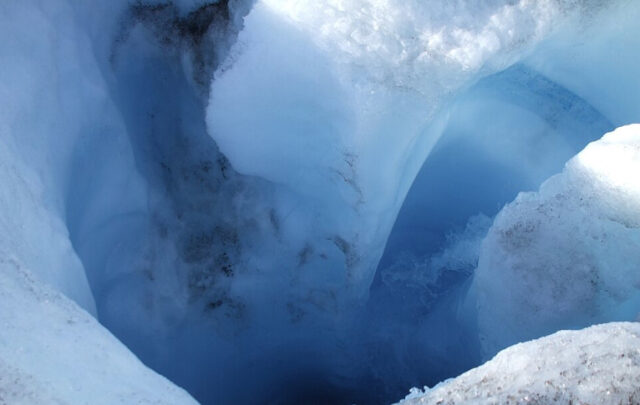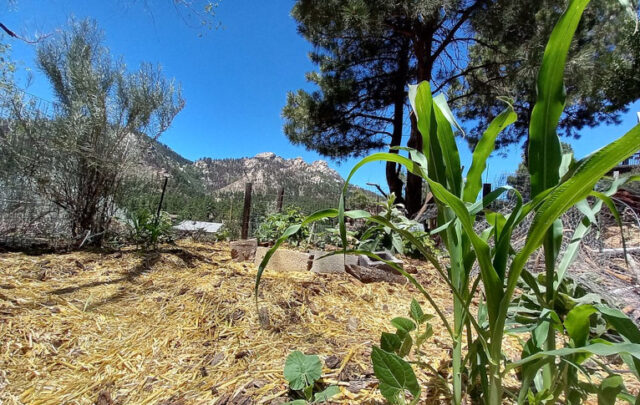In ancient times, the standard way to deal with different opinions was found in the fine art of rhetoric. At the time of Seneca, rhetoric was perhaps the main skill of a man of culture: the capability of debating was valued and practiced.
The use remained for a long time, even in scientific matters. At the time of Galileo Galilei, it was still the standard way to discuss. Galileo wrote his “Dialogo sopra i due massimi sistemi del mondo” in 1632 as a fictional dialogue among three savants. (see image above).
But rhetoric has completely gone out of fashion nowadays. Did you notice how in the media or in the socials there is no more debate? There are only insults. There has to be something deeply wrong in the way society is functioning that makes it impossible for most of us to discuss with people who don’t fully agree with us.
Nevertheless, the art of the fictional dialogue has not disappeared. Here is how it was recently interpreted by Kathy Shields, republished here with her kind permission. Note how you could see the dialog she presents as a sort of crescendo in which the protagonists, the ecologists and the economists, sort of play a musical duet that grows in tone and volume, ending with a final bang: “who put these people, (the economists) in charge?”
There are many ways to describe a Seneca cycle, this is one.
By Katy Shields
ECOLOGISTS: Hi, economists, we’ve been thinking: all this economic growth, looks like it could be setting us up for some pretty major problems. We’re destroying nature at break-neck pace-
ECONOMISTS: But that’s just a small price for progress surely! And it’s not like we’re going to run out of anything any time soon!
ECOLOGISTS: Oil is getting pretty dear…
ECONOMISTS: True, but you see, once resources start to get scarce their price rises and we’ll be forced to conserve, look for alternatives. So, it’s a good thing! Don’t underestimate human ingenuity!
ECOLOGISTS: Don’t you worry about the impact?
ECONOMISTS: Of course, no one wants to have to breathe in smog or drink filthy water! But here in the rich world, we’ve already started cleaning things up. You see, when people get richer, they start to demand better from their politicians. We need to help other countries to grow. Then we can fix all of the problems…
ECOLOGISTS: Well, if you’re sure….
1980s
ECOLOGISTS: Hi, economists, it’s us again. So, about that growth…
ECONOMISTS: Wonderful, isn’t it! We think we’ve really cracked it this time. Financial liberalisation! We can grow our economies much faster now! Especially now we’ve fixed the oil crisis.
ECOLOGISTS: Yes–but we’re pumping out more than ever now. Do you remember when we talked about the problems? The greenhouse effect-
ECONOMISTS: True, that is a worry. But as we said, as incomes rise people care more about the earth and will demand better. It will trickle down to all the poor folks!
ECOLOGISTS: You don’t worry about rising inequality?
ECONOMISTS: How so?
ECOLOGISTS: Well, if you have more money to begin with–it’s easier to get more, so the gap will widen–it’s a feedback loop
ECONOMISTS: Sorry, a what?
ECOLOGISTS: A feedback…wait, don’t your models integrate …?
ECONOMISTS: Er….
1990s
ECONOMISTS: Hey, ecologists! You must be pleased–that agreement to fix the ozone layer
ECOLOGISTS: Yes, amazed actually…
ECONOMISTS: How so?
ECOLOGISTS: Weren’t you the ones that said we just need to increase the price, implement a tax, not get rid of the gases entirely?
ECONOMISTS: Oh… anyway, we’re super-busy actually, working on a global trade regime. Globalisation. You should be pleased. It’s going to help all the poor countries out of poverty, clean up the environment
ECOLOGISTS: By cleaning up do you mean you’re going to require those who trade with you, or your companies investing abroad, to meet standards, like on pollution?
ECONOMISTS: Don’t be silly! We couldn’t possibly enforce that! Anyway, it’s not our job. That’s a matter for national governments, we have to respect peoples’ personal preferences, after all.
ECOLOGISTS: We really ought to sit down, show you some of our numbers. The problems are mounting. Greenhouse gases, deforestation, over-fishing, species loss. We could be reaching some tipping points, may even have overshot some boundaries…
ECONOMISTS: Actually, we’ve got our own guys working on it now
ECOLOGISTS: That’s great! We should talk-
ECONOMISTS: Hmm…that’s very kind but we think what we really need to do is work out the cost and benefits. Find the optimum level so we can still keep our economies growing. That’s more our domain, don’t you think?
ECOLOGISTS: You see, that’s our point. Haven’t we had enough growth now? Hasn’t all the wealth trickled down? Shouldn’t we be talking about a different kind of prosperity?
ECONOMISTS: What and leave all the poor countries high and dry! Shame on you! Anyway, once all the manufacturing shifts abroad we’re going to have to think of new ways of employing people in rich countries too. Can’t have people sitting idle–we need to fund our deficits somehow! But you needn’t worry: services like retail, travel, technology and so on use far fewer resources so growth and environmental damage are going to decouple. We’ll fix the problems soon enough!
ECOLOGISTS: Uh, really….?
2000s
ECOLOGISTS: Hi economists, so, about the climate problem-
ECONOMISTS: Right, yes, the climate! Good you mention it. Globalisation has gone even better than we could have imagined! Wealth at all-time highs, growth, rocketing all around the world. We reckon we’ve finally got enough money to clean up the environment
ECOLOGISTS: Good, because things really are looking serious. Temperatures are rising more rapidly than ever-
ECONOMISTS: Yes, funny how for a while there it looked like the problem had gone away…
ECOLOGIST: No, it hadn’t. It was the volcanic eruption in the Philippines. We told you that. Enough sulphur released to cool the atmosphere for a few years. Seems some people found it convenient to pretend otherwise, though…
ECONOMISTS: Look, does it really matter? We said we’re looking at the problem now. And with the marriage of finance and technology we reckon boom and bust cycles are gone for good. Green investment is going to go up, not down
ECOLOGISTS: So it’s just going to be growth from now on? Even with all the debt we’re storing up?
ECONOMISTS: Exactly! Wonderful, isn’t it. Whoever said you couldn’t have your cake and eat it? Now, we just need to calculate the optimal level of warming that will allow us to keep growth going while cleaning up the environment…
ECOLOGISTS: About that—don’t you find 3 degrees a bit much? Last time it was that hot on earth sea levels were metres higher!
ECONOMISTS: You really do underestimate the human capacity to adapt, don’t you? And they say ours is the dismal science! Anyway, we’re not totally agreed on the level of warming. It depends on the discount rate
ECOLOGISTS: Hmm–discount rates. The idea that the present is more valuable than the future. We always wondered why you took that view. Surely we want our children to have lives at least as good as ours…don’t you think the economy should also somehow reflect our values? Seems like it does the opposite…
ECONOMISTS: Sorry, values, what? You’ve lost us…
2010s
ECOLOGISTS: Hi, economists? Economists? Can you hear us?
ECONOMISTS: Oh, it’s you lot again. Is that the time? Sorry, been feeling a bit down lately
ECOLOGISTS: The financial crisis?
ECONOMISTS: Yep
ECOLOGISTS: What are you going to do about it?
ECONOMISTS: We plan on pumping money into the system in the form of cheap debt and hoping the private sector will pick it up
ECOLOGISTS: Wait–wasn’t it debt that got us into this mess? And it sounds a bit…blunt. How are you going to ensure it will go to all areas we need it to, instead of just those who already have money? We need to be fixing the climate, the biodiversity crisis. Then there’s the sustainable development goals! You know estimates of poverty reduction seem to have been a bit off. When you look at the indicators: hunger, access to clean water, sanitation…we have more people living in destitution now than ever before…
ECONOMISTS: Yes and not just in poor countries! Unemployment is rising everywhere. You can’t expect lawmakers to worry about sustainable development at a time like this! But look, at least governments have signed up to these goals. Even to limit warming to 2 degrees-
ECOLOGISTS: We did warn you about tipping points, feedback loops–
ECONOMISTS: Yes, yes. Well, in a few years things should be up and running again so we can start to really tackle it
ECOLOGISTS: You’re not worried that people in rich countries might care less about the environment now they have more pressing concerns? Even vote for leaders that care less, if they promise they’re going to give them their dirty industries back?
ECONOMISTS: Well at least the young people are taking to the streets.
ECOLOGISTS: But they don’t vote, do they?
2020s
ECONOMISTS: Hi ecologists. Good to see you. Things are NOT going well. Biodiversity is crashing. We’re taking more from the earth than we’re putting back, undermining the very conditions for life as we know it! Before the pandemic emissions were still rising. In just a few years we’ll have overshot the 1.5 degree warming limit
ECOLOGISTS: We did say 2 degrees was too much…
ECONOMISTS: Well, what we need now is an economy that reflects our values. Do you realise how little nature is valued? We pay people more to destroy our environment than we do to clean it up. Crazy! We need radical action.
ECOLOGISTS: Radical—exactly! It’s very late in the day. But, at least you’re making the right noises now. Have you been listening to what the ecological economists have been proposing?
ECONOMISTS: Ecological economists. Sorry? Who are they? Are they friends with the behavioural economists? Lovely bunch. I mean they have some useful ideas but they don’t really fit into our models…
ECOLOGISTS: It’s not like the mainstream can claim to have got things right so far…
ECONOMISTS: Look, we’ve always said we need to internalise all these externalities-
ECOLOGISTS: You’re, erm, still using that word? Externality…like it’s somehow taking place elsewhere, on another planet… Look, what’s the plan? Shut down polluting industries? Bans on advertising, on political lobbying? A basic income or job guarantee (you can use your money printers) so people can spend time looking after nature and each other? Hard limits on material use, growth….
ECONOMISTS: Whoa there, hold your vegan lattes! When we said radical we didn’t mean ending growth altogether. We reckon we can still have sustainable growth
ECOLOGISTS: Really? You sure you’ve talked with the ecological economists? The earth systems folks? Decoupling hasn’t happened so far. Seems almost impossible to reduce emissions and prevent continued loss of nature together with all the damage climate change is already wreaking while simultaneously allowing business as usual to continue. Even if it’s gradually getting a bit cleaner, that damage is still mounting up. Face it: time’s up. Isn’t it time to abandon the growth idea altogether? Think of a new way to organise ourselves if we want to stick around beyond the next few decades?
ECONOMISTS: We haven’t put all this effort into creating this whizzy financial system, the global trade regime, the multinational corporation–for nothing! Our models are predicated on there always being growth. And anyway, even if we have got it all wrong–we’d look like fools to back out now… No, we’ll just need to use the system we have. Just… give us a bit more time. Until now, we haven’t valued nature–we admit that. So, we need to come up with a value for it. That’s it! We’ll put a price on it, we’ll put a price on everything! Turn everything, including nature, into assets!!
ECOLOGISTS + ALL NON-ECONOMISTS: WHO PUT THESE PEOPLE IN CHARGE??





